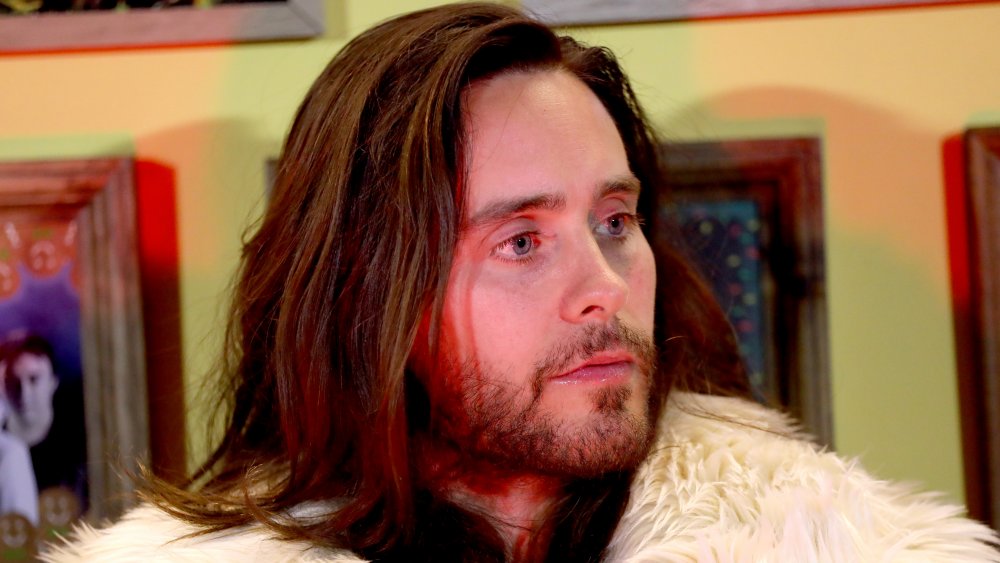The Truth About The Guinness World Record Set By Thirty Seconds To Mars
Actor and musician Jared Leto started his band Thirty Seconds to Mars with his brother, Shannon, in 1998. While Jared devoted a lot of time to the growth of the band, he once revealed in a 2016 interview with Rolling Stone that he never actually planned on achieving fame or being a rock star as a kid. "I didn't even know the word 'celebrity.' I didn't have posters of people that I loved on my wall," Leto admitted. "I thought musicians and actors and these types of people were like magic. It was royalty or you were born into it, or it was some stroke of luck or genius."
That said, Leto didn't hold himself back when he finally started making music. He gave Thirty Seconds to Mars everything he had. He has spoken about the power and endless potential of music in interviews. "There are chemicals released [in the brain] when people sing together that are similar to the chemicals that are released when people are in love," he told Magazine C in a candid conversation. "And it creates a feeling of well-being, bonding, euphoria," he added.
The band cracked a world record
Jared and Shannon managed to bag the Guinness World Record in 2011 for performing the maximum number of shows during one album cycle. Their total count? 309 gigs, to be precise. "We thought documenting this for posterity with Guinness World Records would be fun especially as we aren't any good at growing our fingernails very long or cultivating the world's largest squash," Jared commented, adding that they'd been touring for two long, crazy years. The journey was anything but straightforward and was articulately expressed in a documentary film, Artifact, according to another Rolling Stone article. The film had footage that ran for as long as 40,000 hours and took Jared almost four years to finish.
The delved into the darker side of the music industry, detailing massive lawsuits and widespread corruption in the multi-layered music business. "This was not a fight against a record company, but against corruption," Leto revealed to The Hollywood Reporter. "A record company can be a beneficial thing — to have a team of people around the world to help you realize your dream — but a corporation that engages artists with these convoluted contracts that leaves them in a state of terminal debt? Just because you can get away with something doesn't mean it's okay to do. The battle between art and commerce is something we dealt with consistently from the time we were signed, and even today."

